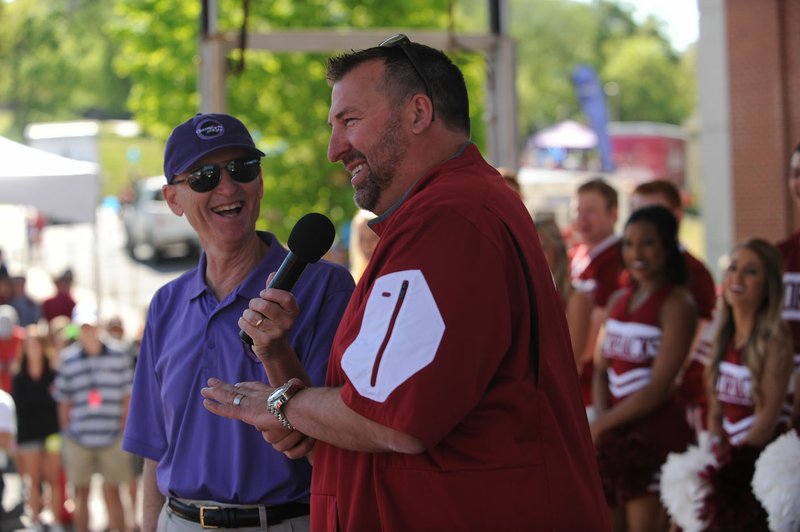The NCAA Division I Board of Directors rescinded a proposed ban on satellite camps Thursday, rebuffing a request from powerhouse conferences in the South and clearing the way for coaches to hold clinics far from their campuses this summer.
Effect on Arkansas
Arkansas Coach Bret Bielema has been a proponent of satellite camps and has mentioned the possibility of doing camps in Texas, Florida and in Big Ten territory.
Barrett Sallee of the Bleacher Report said the SEC will lift the ban of satellite camps on May 29. He reports the camps are a good thing for the SEC.
-Richard Davenport
The board's decision came almost three weeks after the Division I Council approved a proposal prohibiting Bowl Subdivision coaches from holding or working at camps and clinics away from their schools. The camps had drawn a high profile since Jim Harbaugh and his Michigan staff held camps in the South last summer.
The Southeastern Conference and Atlantic Coast Conference sponsored the proposal that had created the ban. There was an immediate outcry from coaches across the country who contended satellite camps provide opportunities for previously un-recruited athletes to be noticed by high-profile coaches and possibly receive scholarships.
The board also directed the council to conduct a broad assessment of FBS recruiting, with initial recommendations due by Sept. 1.
"The Board of Directors is interested in a holistic review of the football recruiting environment, and camps are a piece of that puzzle," said Board Chairman Harris Pastides, president of the University of South Carolina. "We share the council's interest in improving the camp environment, and we support the council's efforts to create a model that emphasizes the scholastic environment as an appropriate place for recruiting future student-athletes."
Opponents of the camps say they are simply recruiting events held outside the recruiting calendar.
The Big Ten turned out to be the only Power Five conference in the D-I Council to oppose the ban. The Big 12 and Pac-12 joined the SEC and ACC in voting for the ban, even though a significant number of coaches within those conferences favored satellite camps. Pac-12 Commissioner Larry Scott later said the conference's representative on the council did not vote the league's position in backing the ban.
Council Chairman Jim Phillips, a board member and athletic director at Northwestern, said the board's decision will give the council an opportunity to review the recruiting environment in a more thorough way.
"It's clear that the membership has differing views on this subject, and the council appreciates the board's insights into this important issue," Phillips said. "This review will provide an opportunity to identify the most effective ways prospective student-athletes can have their academic and athletic credentials evaluated by schools across the country."

